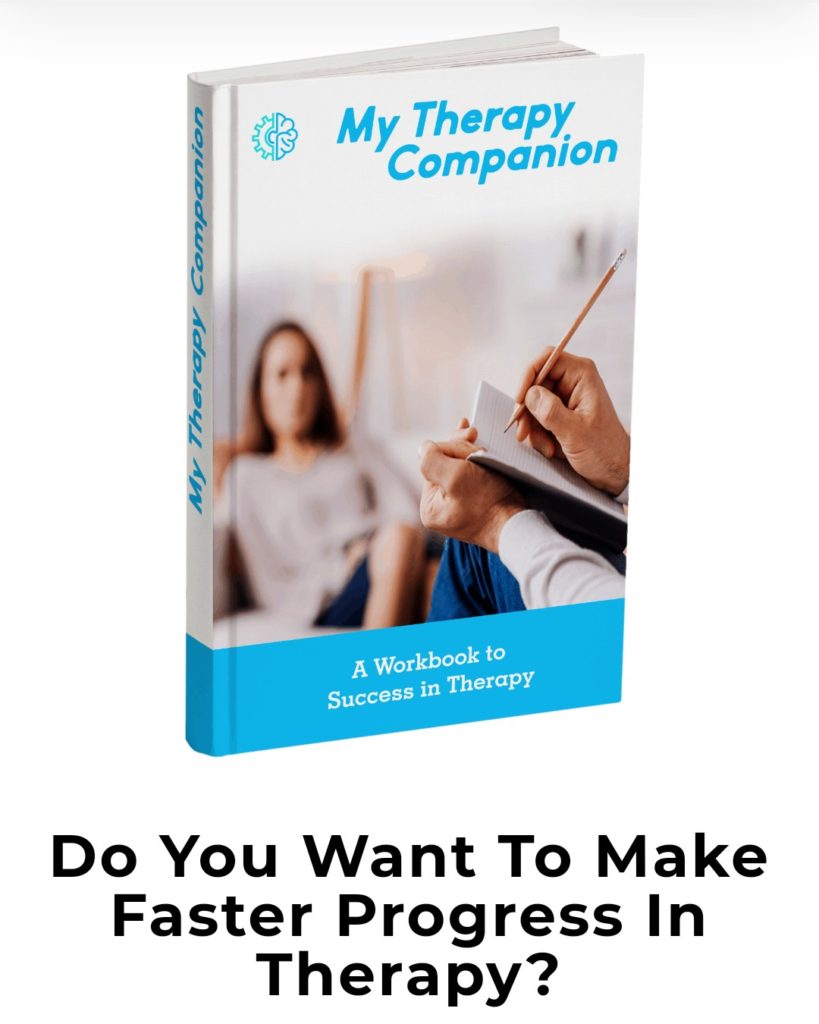
Ben or, if we are being formal, Benjamin Scott Barrett is the author and sole contributor to the “The How to Social Worker” blog. A blog to spike mental health awareness and help people find tools and efficient information around therapy and how to deal with mental illnesses.
He is the author of ‘My Therapy Companion’ book, a book to help people make the best out of their therapeutic experience and avoid making the common mistakes that hinder their healing process.
He holds a psychology degree from North Carolina State University and a master’s degree in social work with an emphasis on clinical and drug and alcohol abuse by Western Michigan University.
A Michigan native, he is on a mission to blog about mental illness to help overcome it.
He lives in his native town, with his wife and kid and now he is here today with us so we can learn a few things.
So, Ben, you are a social worker, a blogger from “The How To Social Worker”, the author of ‘My Therapy Companion’ and so much more. You got a lot going on for yourself! Congratulations! I want to kickstart this interview by asking how did all this mental health venture begin?
My venture into mental health began about a decade ago. Following some mental health struggles of my own, I had come into contact with the field. Soon I began as a professional and have been expanding on my career ever since. This has led me to the blog.
The purpose of The How-to Social Worker is to provide good information on mental health for everyone- including professionals.
From an outside perspective and just by visiting your website and social media, anybody can see that you seem very interested in helping people be able to, not only invest themselves more into mental health, but also it seems you are very passionate about helping people be more efficient with their therapeutic process. You want people to go to therapy, but you want them to do it the right way. Your book ‘My Therapy Companion’ taps into that problem. Can you tell us a little bit more about why you chose to help with that specific issue?
Therapy is a very difficult experience to support. This is in part because of the expectations that people have going in. Their perception is often that their work is done once they arrive. That couldn’t be further from the truth.
To get the most benefits from therapy, you have to be committed. That means not sitting passively in your appointments. You must learn and grow through the process. That also means working on any homework provided and bringing back relevant issues that you’re having.
‘My Therapy Companion’ is my way of supporting the therapeutic process. It helps keep you on track in-between appointments. It also helps prepare you for sessions and debriefs following them. The workbook focuses on growth. While using the workbook, your chances of success will increase. There will be less of a chance of having to go to therapy indefinitely as you’ll have a clear roadmap noted.

Sometimes it’s about having the right tool.
Few things are as rewarding to a professional as a success story from a client. What is that one success story that you would tell your younger self to illustrate to him why you chose your path?
That’s a tough question as my younger self and I couldn’t have been more different. The one story that I would tell would have to be changed to a degree to protect privacy, but here is the gist of the story.
One of the most rewarding interactions I’ve had is with a woman we will call Cheryl. This woman was pregnant and using cocaine and heroin very regularly. Through our work together and support from our broader team, she was able to get onto suboxone and stopped her heroin use altogether. As we worked together in therapy, Cheryl was able to really cut down and subsequently stopped her cocaine use.
As her use slowed and stopped, I was able to visually tell how much healthier she looked. This was something we would talk about to keep her motivation and self-worth high. Cheryl was not any of the horrible portrayals we see on TV representing an addict. Cheryl had a great heart but a horrible dependence. The interactions that we had and growth which resulted was amazing.
As a blogger and content creator, I know you probably have your favorite piece, but for me, your article “22 surefire ways to prepare for therapy” is a perfect representation of your mission. One of the things I love the most is that it is filled with easy to follow advice on how to prepare for therapy. Did you have a person in mind when you wrote it?
Generally, when I’m writing a piece, I try to keep its target audience in mind. I want my readers to get something from the material that will improve their life to some degree. Due to my experiences both being a patient and a professional in therapy, I know how hard it can be to get help and make the most of the experience. Therapy is an activity that people sometimes feel helpless in; you show up, talk, and nothing changes. But why is that the case? Just because we are talking, it doesn’t mean that there isn’t anything proactive we can do to make it meaningful.
I hope that those who are looking to make start seeing a therapist will find this article to lower their resistance to start. Therapy can be a life-changing experience for sure.

Take notes time.
In your article, you give 22 tips as to how a person should prepare before initiating a therapeutic process. Now, we are not going to discuss them all, because they are 22 after all; instead, I thought of doing something different. I want you to pick your top 5 and tell the audience how to apply them.
- Recognize the apprehension: Feeling nervous is pretty normal before you start anything new. Instead of ignoring the apprehension, you need to readily identify that it’s there. Change is scary, and that’s why you’re apprehensive. You also may be apprehensive because you’re afraid therapy won’t work. Talk these feelings out with yourself or with a friend. Also, when you get to the therapist, talk it out with them. They will help create a roadmap to success with you.
- Spend Time in Reflection: Reflecting on your sessions is important. If you walk away from the session and can make one improvement in your life, that’s a huge success. However, we don’t often know what we learned until we explore and evaluate those thoughts afterward. Think about the issues discussed during the session and the questions you were asked. Use your new perspective to make change.
- Do Not Expect to Spend the Session Venting: When you start therapy, you and your therapist will create a goal. That is the destination that you both are working towards. If you come into the session venting about something unrelated, then the session is wasted. There was no movement towards the destination you both established. Now, certain things happen in life and being able to talk that out with your therapist can be helpful. This may then be a 10-minute sidebar for your time together. Your therapist may also be able to pull out some underlying themes with the greater problem you’ve come to them for, but do not vent the entire time. Venting does not create longstanding change.
- Make Yourself A Daily Journal: I’m a big proponent of journaling. This doesn’t have to be about your crush inside a flower-covered notepad. Journaling has a very specific place in therapy- especially if you’re taking part in cognitive behavioral therapy. If you can sit down and write for 10 minutes about the progress you made towards your goal or something you learned about yourself, I have no doubt you’ll make significant progress in therapy. You will learn a ton. You can even do simple journals where you jot down two things you’re appreciative of that happened during the day. This will help curb your thoughts to be more positive.
- Diagnosis is Important but It’s Not: Diagnosis is something that a therapist has to give you to bill insurance. If you receive paperwork with a diagnosis on it, and that bothers you, please talk with your therapist. It doesn’t mean that you’re “crazy” or everyone will somehow know you have a diagnosis. First off, confidentiality prevents the therapist from telling anyone your information without written consent. Secondly, a diagnosis often changes throughout sessions as more information comes to light; it also provides a set of symptoms for therapists to use uniform language. It is not a personal label.
Mental illnesses have it tough sometimes; not everybody seeks help, and when they do, they already have one foot outside the door. Sometimes the problem is not the lack of clinical value but the misconceptions that people have about treatment. Some of those misconceptions convince them of not to seek treatment and other times makes them abandon the procedure altogether before it starts getting good.
That’s why being able to prepare for success is important.
Many people don’t know how to choose the right therapist for them, many don’t understand what happens during treatment, others might confuse the way therapist asses them with a normal talk and lose trust in the effectiveness of the method, and just like these, there are other things that can get in the way of your treatment.
I think that knowing how a specific therapy is supposed to work and understanding that you have a role to play, increases your trust in the process.
But it’s not just about getting informed so you could turn around some of your misconceptions about therapy, it’s also about how to make sure the therapeutic goal gets achieved. Ben’s brilliant depiction of the obstacles that you are more likely to encounter and his proposed way to deal with it, is a light in the tunnel for the people who don’t want to be getting in and out of therapy, and going on circles with their mental health, especially when you are talking about serious conditions.
Having a guide like Ben’s is designed to help you make the most out of the process. I hope you enjoyed the interview but that most of all, you found it to be helpful.
You can visit Ben at his blog “The How To Social Worker” and join his community here.
Make sure you go into therapy with a winning hand; get Ben’s ‘My Therapy Companion’ for only $17 for a limited time here.
Thank you so much, see you soon!

